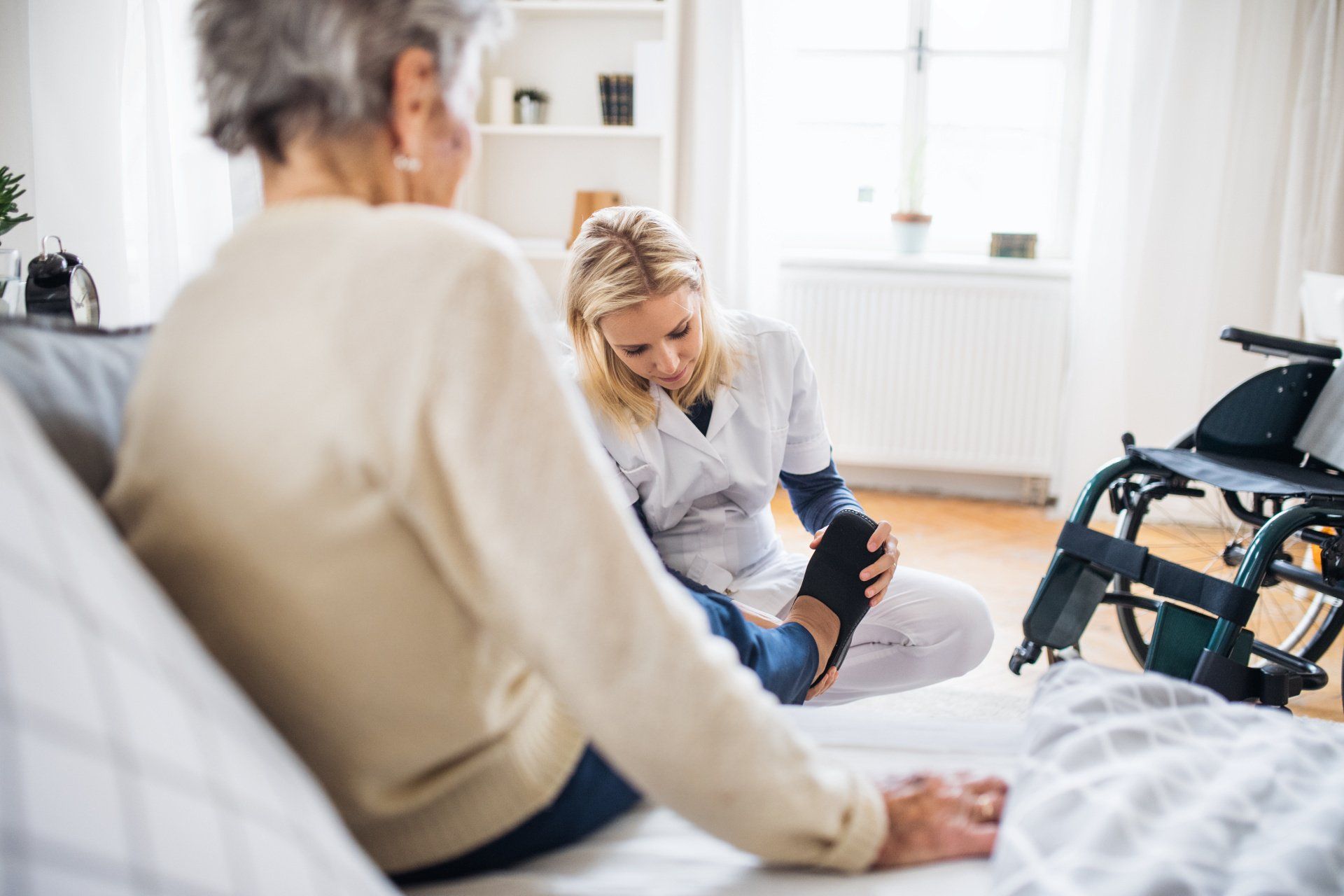Home Health Services Serving Hampden County & Western Massachusetts
Call (413) 217-9861
Understanding Senior Bathroom Concerns and How to Address Them
When it comes to aging, certain topics are often left unspoken, hidden behind a veil of discomfort and taboo. Among these, the bathroom needs of seniors are perhaps the most delicately tiptoed around, despite being a fundamental aspect of daily life. It's a truth that may be hard to confront: as we age, the simple act of going to the bathroom can become fraught with challenges. Yet, acknowledging and addressing these issues is crucial, not only for the physical well-being of our elderly loved ones but also for their dignity and independence.
The reality is that with age, tasks that were once mundane become significant hurdles. Mobility limitations, decreased manual dexterity, visual impairments, and increased frequency of bathroom visits – particularly at night – are just a few of the challenges the elderly face. These difficulties are often compounded by feelings of embarrassment or a reluctance to seek help, making a sensitive topic even more complicated.
The good news is there's hope and help. This guide was created to help understand the common bathroom-related challenges seniors encounter, practical advice for family caregivers and insights into when it's time to seek professional assistance. From making the bathroom floor after to understanding the ins and outs of in-home toileting assistance, our aim is to help guide you through the delicate topic of elderly bathroom issues with empathy and expertise.
Main Challenges Seniors Face in the Bathroom

Navigating the bathroom safely and comfortably can become increasingly difficult as people age. Understanding the specific challenges seniors face in the bathroom is the first step towards creating a safer, more accommodating environment.
For many seniors, diminished strength, joint pain, and balance problems are everyday realities. These issues significantly impact their ability to move to and from the bathroom, particularly during urgent needs or in the middle of the night. The risk of falls and accidents increases as seniors attempt to navigate bathroom facilities, with tasks like sitting down or standing up from the toilet becoming especially risky.
Manual Dexterity Limitations
Conditions such as arthritis impede the ease with which seniors can perform fine motor tasks. This limitation can make basic bathroom activities, like using toilet paper or handling hygiene products, challenging. The struggle to maintain personal hygiene can lead to frustration and has the potential for various health concerns.
Visual Impairment
Aging often brings about reduced vision, complicating the task of safely navigating the bathroom. The likelihood of misjudging distances, failing to notice bathroom hazards, or confusing toiletry items increases with poor vision. This can lead to slips, falls, and errors in personal care that are not only inconvenient but potentially dangerous.
Increased Bathroom Frequency and Incontinence
Urinary incontinence or an overactive bladder often leads to an increased need for frequent bathroom visits among seniors. This issue is particularly problematic at night, known as nocturia, disrupting sleep and raising the risk of accidents while making the trip to the bathroom. The frequent need to use the bathroom can become a significant source of distress and has implications for a senior's quality of life and overall well-being.
Toileting Tips for Family Caregivers
Understanding the issues our seniors face, here are some practical tips for family caregivers to help alleviate bathroom difficulties and promote independence:
TIP #1 Prepare Safe Access to the Bathroom and In The Bathroom
Take the time to make sure the bathroom is easy to access and maneuver around. This may involve installing grab bars, non-slip mats, or a raised toilet seat. Additionally, keeping commonly used toiletry items within reach can help reduce frustration and promote independence.
TIP #2 Keep the Bathroom Well-Lit
Adequate lighting plays an essential role in reducing falls and promoting safety in the bathroom. Adding night lights or motion sensor lights can also help seniors navigate the bathroom at night.
TIP #3 Encourage Fluid Intake During the Day
Dehydration can worsen incontinence and increase nighttime trips to the bathroom. Encouraging seniors to drink fluids earlier in the day and limiting intake before bedtime may help reduce these issues.
TIP #4 Consider Incontinence Products
Incontinence products, such as pads or adult diapers, can provide peace of mind and prevent accidents while seniors are still working on managing their bathroom trips.
TIP #5 Be Understanding and Patient
It's essential to approach conversations about bathroom difficulties with empathy and understanding. Seniors may feel embarrassed or ashamed about their challenges, so it's crucial to be patient and supportive. Have a conversation with your loved one about how you can help without making them feel inadequate.
View additional tips for assisting elderly individuals to the toilet >
Recognizing When to Seek Professional Help

As a family caregiver, knowing when to seek professional home care assistance for your senior loved one’s toileting needs can be challenging. While your support is invaluable, there may come a point where the care required exceeds your abilities or availability. Understanding when to transition to professional in-home care is crucial for the well-being of both you and your loved one.
Indicators that Professional Help May Be Needed:
- Increasing Physical Needs: If your loved one's physical demands become too strenuous for you to manage safely, it’s a clear sign that professional help may be required. This can include needing help with lifting, moving, or constant supervision.
- Emotional and Mental Toll: Caregiving can be emotionally and mentally draining, especially when managing intimate tasks like toileting. If you feel overwhelmed, stressed, or resentful, it’s important to consider seeking external help.
- Decline in Health or Hygiene: Noticeable declines in your loved one’s health or hygiene despite your care might indicate that their needs are more complex and require professional expertise.
- Safety Concerns: If there are increased incidents of falls, near-misses, or other safety concerns, professional caregivers can provide a safer environment with their specialized training and experience.
- Caregiver's Availability: Your availability to provide care might change due to work, personal health, or other commitments. If you’re unable to be present as much as needed, a professional caregiver can ensure consistent, quality care.
- Specialized Care Needs: Certain health conditions require specialized care – something that family caregivers might not be equipped to handle. Professionals with experience in specific conditions can provide targeted care.
While many family caregivers may struggle admitting they need help, the safety and well-being of your senior loved one should always be the top priority. If you find yourself struggling to help your loved one with their toileting needs, take the time to reach out to a homecare agency near you or a
professional caregiver. They can meet with you and your loved one to assess their care needs and create a personalized care plan that ensures they receive the best possible support.
In-Home Caregivers in Western Massachusetts
At Chanda Care, we understand the unique challenges family caregivers face when it comes to toileting and other personal care tasks. Our
professional caregivers in Western Massachusetts are trained and experienced in providing compassionate, quality care for seniors with a range of needs.
Contact us today to learn more about our services or schedule a free consultation to discuss your loved one’s care needs.
Services
Chanda Care Services offers a support system for families and caregivers of clients and provides home management care to clients who want to remain as independent in their home for as long as possible.
Our Services
Support & Information
All Rights Reserved | ChandaCare

